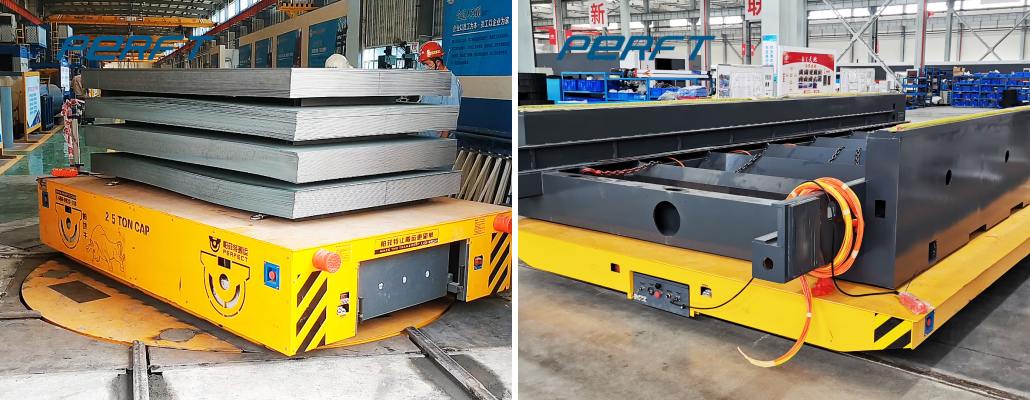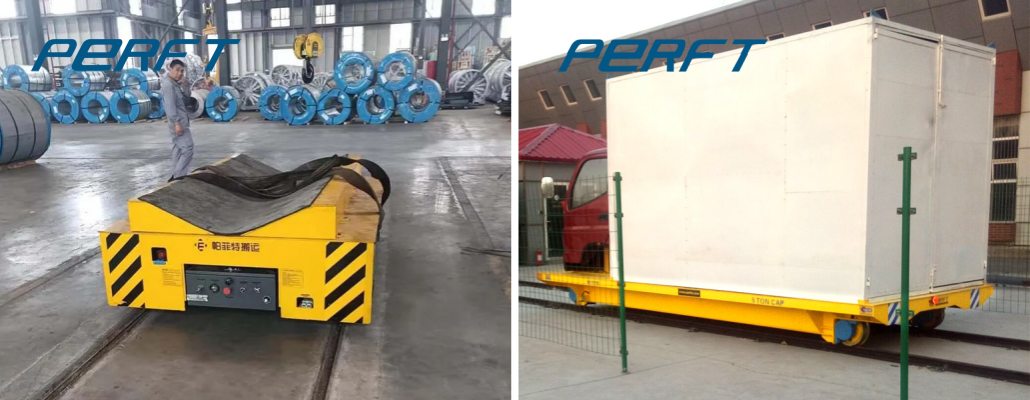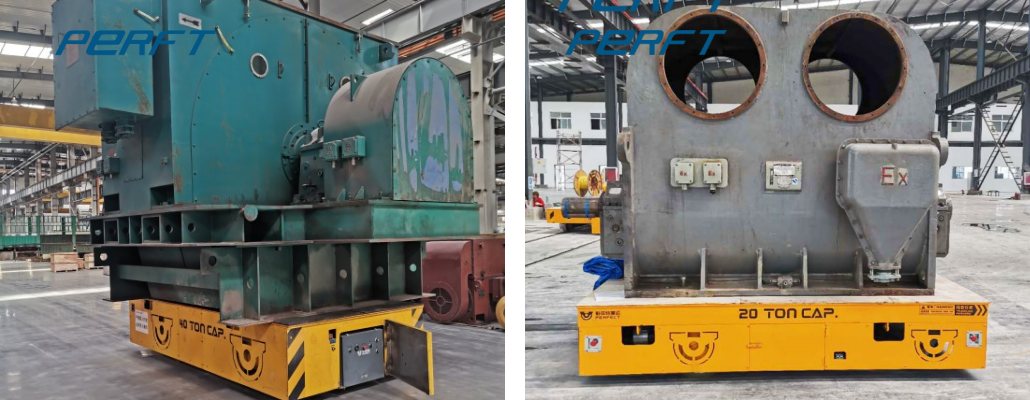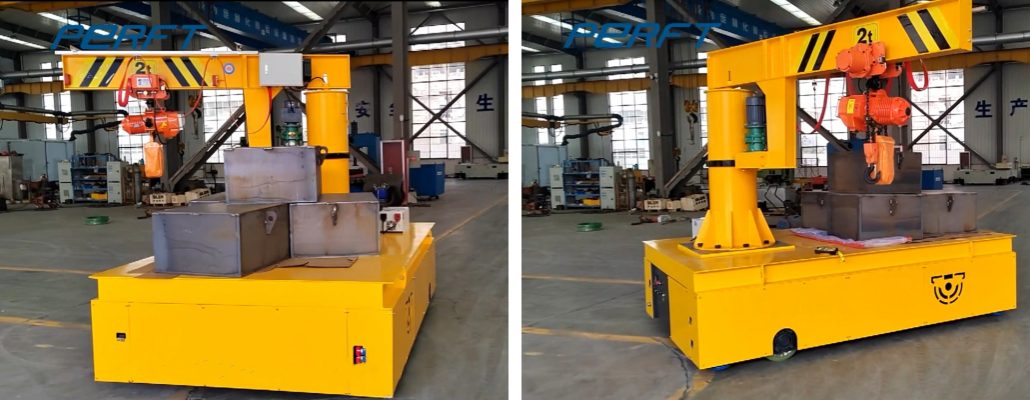Advantages of Transfer Trolley on Rail
Smooth Running
As it travels on a fixed track, it will not run off and shake, which is especially suitable for transporting precision instruments, glass products and other goods that require high stability. For example, in the electronic components production plant, rail transfer trolley can safely transport precision electronic components to avoid damage to the components due to vibration.
Strong Carrying Capacity
The design of the rail can better disperse the weight and can carry heavier goods. In heavy machinery manufacturing enterprises, electric rail transfer trolley can easily transport large mechanical equipment components to meet the production demand.

Uniform Travelling Speed
The speed can be adjusted through the control system to ensure the smoothness and consistency of the transport process. For the enterprises that need to carry out assembly line operations, transfer trolley on rail can accurately transport the materials to each working station according to a fixed speed, so as to improve production efficiency.
High Safety
The track limits the travelling range of rail transfer trolley and reduces the risk of collision with other objects. In factory workshops and other places with dense personnel and equipment, rail transfer trolley can effectively reduce the probability of safety accidents.
20 Ton Battery Driven Transfer Trolley Video
Disadvantages of Transfer Trolley on Rail
Restricted Flexibility
It must travel on the paved track and cannot change the route at will, which is less adaptable to the workshop layout adjustment or the temporary need to change the transport path. For example, if the factory needs to re-plan the production area, rail transfer trolley may not be able to meet the new transport needs, and need to re-lay the track, which is costly and time-consuming.
High Installation Cost
Laying tracks requires a certain amount of capital and time investment, including track materials, installation costs and modifications to the ground. For some small businesses or temporary projects, this may add a large financial burden.
High Maintenance Requirements
Tracks need to be inspected and maintained regularly to ensure the safe operation of transfer trolley on rail. If the track is damaged or deformed, it will affect the travelling performance of transfer trolley and even lead to accidents. For example, the joints of the track may become loose due to long-term use, which needs to be tightened and repaired in time.

Advantages of Steering Transfer Trolley
High Flexibility
Without rail, it can travel freely on any flat surface and can easily adapt to different working environments and transport needs. In the logistics and warehousing centre, steering transfer trolley can adjust the driving direction at any time according to the storage position of the goods and the transport route, so as to improve the working efficiency.
Convenient Installation
No need to lay tracks, saving installation time and cost. For some temporary transport tasks or sites with limited space, steering transfer trolley can be put into use quickly. For example, in the exhibition site, steering transfer trolley can easily transport exhibits and equipment without complicated track installation.
Easy Layout Adjustment
When the layout of the factory floor changes, trackless transfer trolley can quickly adapt to the new transport routes without the need for large-scale transformation of the infrastructure. This is very favourable to the development and adjustment of enterprises.
Simple Operation
Usually operated by wireless remote control or handle, the operator can easily control the travelling direction and speed of steering transfer trolley without professional track driving skills.

Disadvantages of Steering Transfer Trolley
Relatively Weak Load-Carrying Capacity
Due to the lack of rail support, the load-carrying capacity of trackless transfer trolley is generally not as good as that of rail transfer trolley. For the transport of some heavy goods, it may be necessary to choose a more powerful steering transfer trolley, which increases the cost.
Slightly Poorer Operational Stability
In the driving process may be affected by the uneven ground, obstacles and other factors, bumps, shaking and so on. Additional shock absorption measures need to be taken to transport precision instruments and other goods that require high stability.
Limited Range
The battery capacity determines the range of steerable transfer trolley, for long-distance transport tasks, it may require frequent charging or replacement of the battery, affecting work efficiency. For example, for long-distance transport in a large factory, steerable transfer trolley may need to stop halfway to charge, delaying the transport time.

